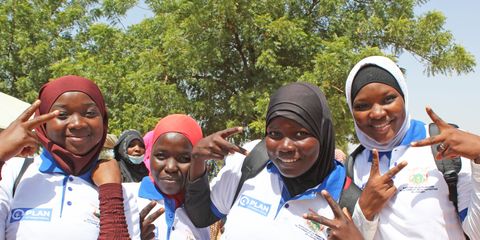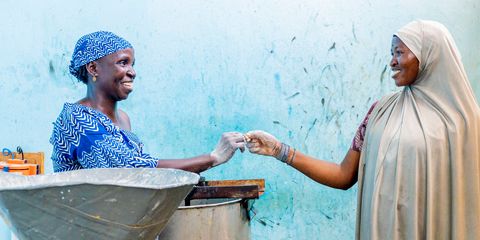Djamila dropped out of school when she was 12. Now 18, she is being trained in carpentry and is hoping to train unemployed young people in her community.
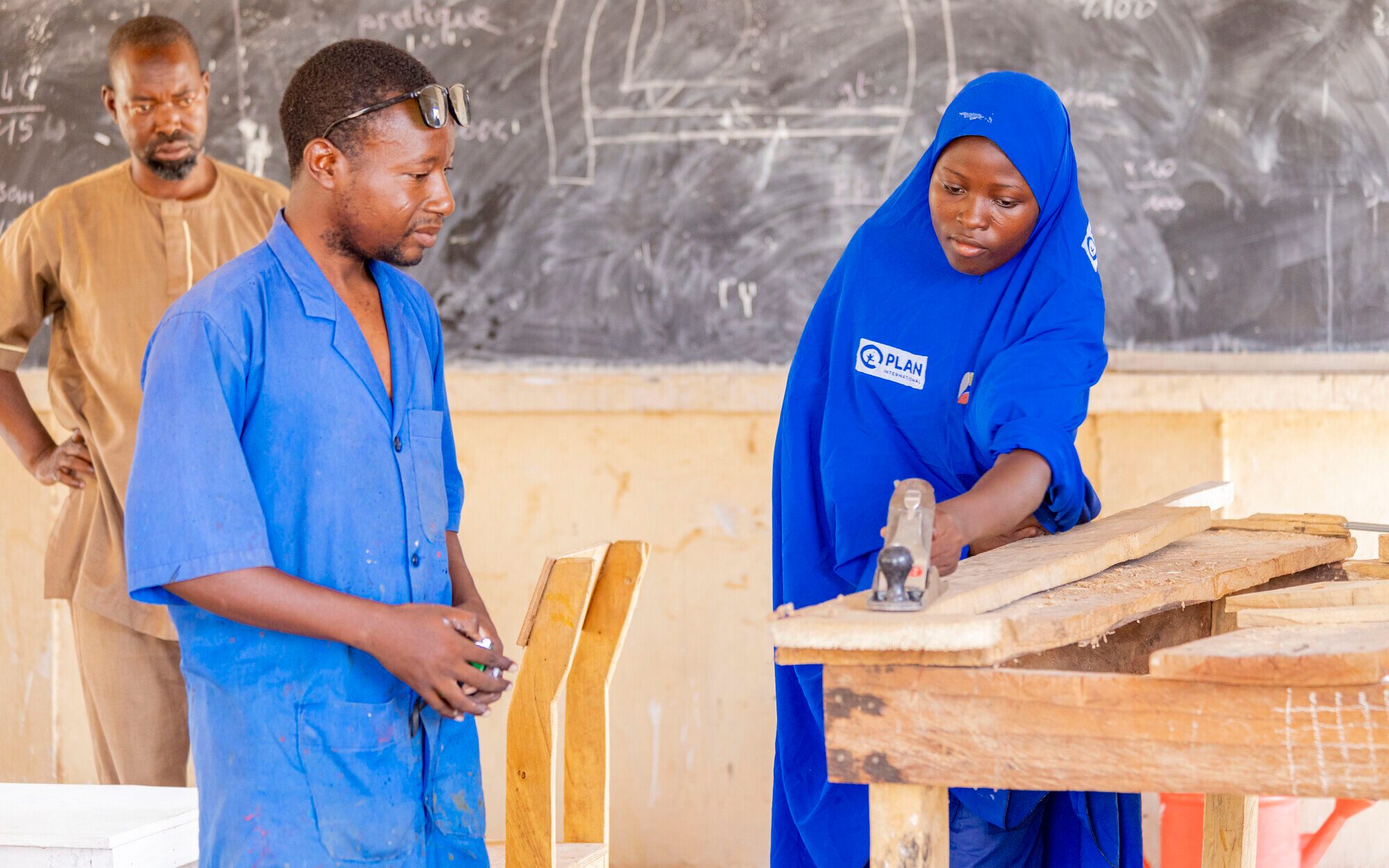
Djamila, 18, dropped out of school when she was 12. Having fallen behind with her schoolwork, she was unable to catch up with the rest of her classmates. Out-of-school, she spent her time at her home in Niger’s Maradi region, however she longed to find a job that would earn her an income.
Like Djamila, most of her female friends also dropped out of school early, either because their families were no longer willing to support their education, or because they had got married.
“Most of my friends are unemployed because they can’t pay for school supplies and fees, or because their husbands stop them from developing income-generating activities,” explains Djamila.
“I’ve learnt a man’s job. Before, I never thought I’d be able to do anything other than housework.”
Djamila
In Niger, 69% of young people are not in school, training, or employment and young women are most affected (77% of women and unemployed compared with 57% of young men).
The unequal access to economic opportunities between young men and women are often perpetuated by the gender norms that limit women’s role to the domestic sphere, reinforcing their difficulties in accessing employment.
In addition, the lack of inclusion of young people in decision-making processes contributes to weak social cohesion. “Young people do not take part in town council decision-making, so they cannot advocate for the creation of jobs for unemployed youth,” says Djamila.
Determination to learn
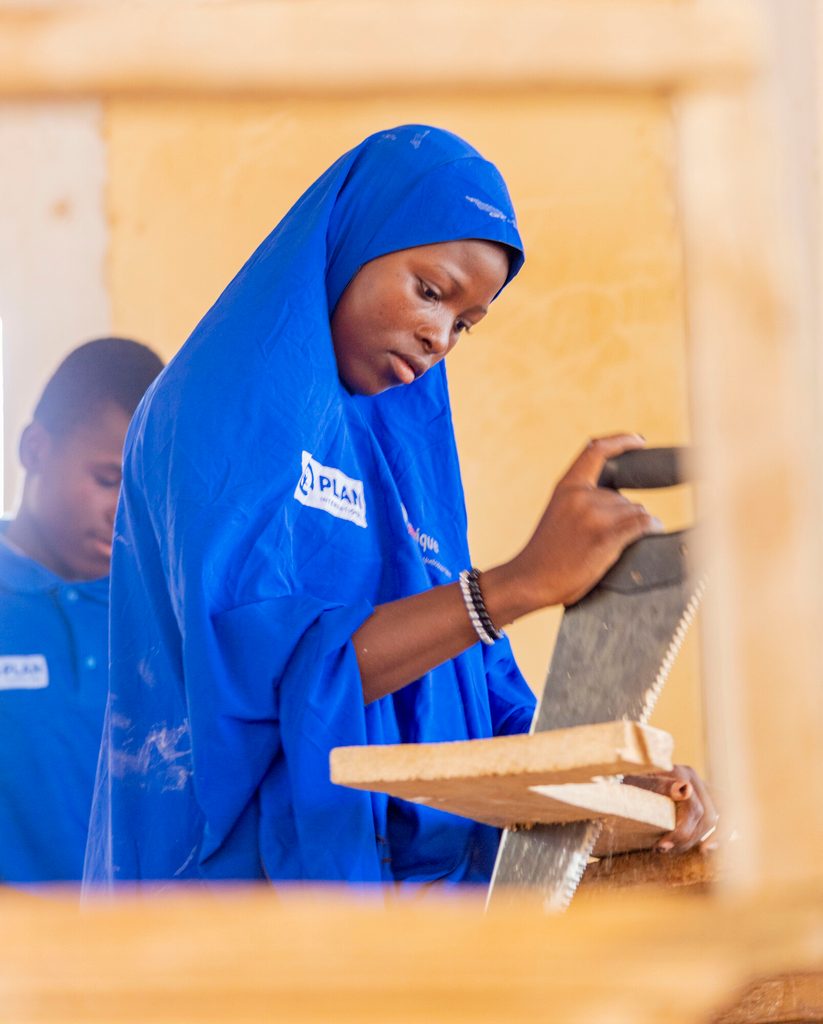
One day, Djamila decided to accompany her brother to the local training centre where he was taking a carpentry course. Picking up a plank of wood, the instructor showed her how to cut it and soon recognised that she had an interest in the profession.
“He suggested I come to the classes as a volunteer, as I’m not one of the project participants of the Plan International funded project who receive a transport allowance to get to the training centre every morning. So I accepted the offer, because a new page was being written in my story,” shares Djamila.
“I’d like to have my own training workshop to teach the young people.”
Djamila
With 2 out of 3 women under the age of 25 unemployed in Niger, it is essential to meet the needs of young people by providing access to vocational training.
“Plan International were supervising the training centre and they approached me because I was the only girl learning woodwork. Surprised by my commitment and dedication, they agreed to formally integrate me onto the training programme, with the agreement of the director of the training centre. I also received 10,000 FCFA for transport, and following the training I will receive 150,000 FCFA to set up my own business.”
Djamila says her training has helped boost her confidence. “Before, I was stressed by staying at home all the time and bored by the routine, I never thought I’d be able to do anything other than housework,” she says.
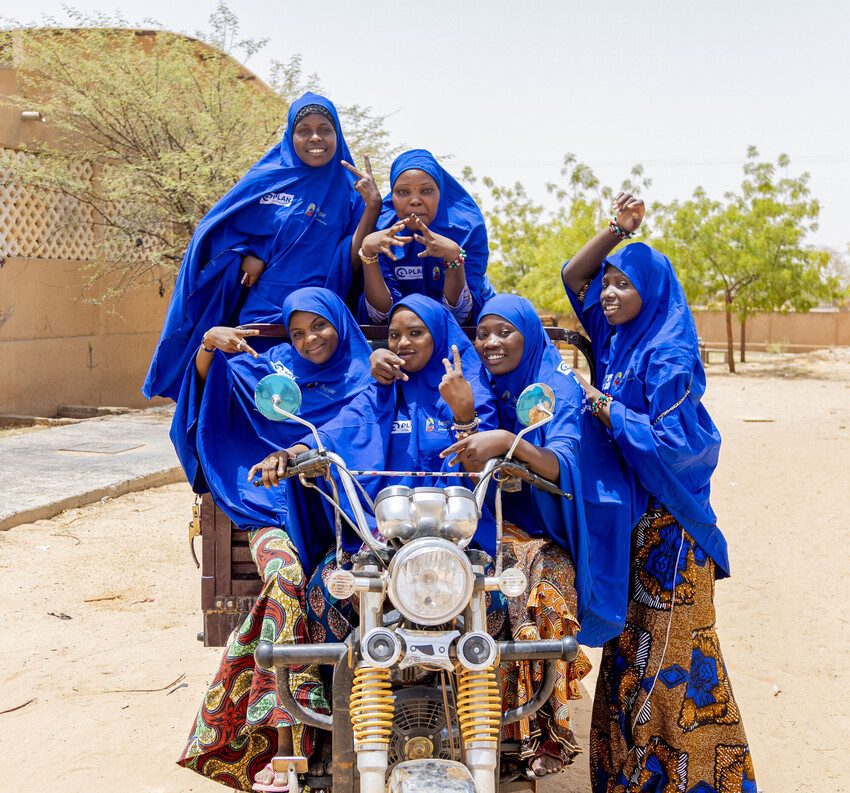
Crediting her mother as being her inspiration, Djamila tells us she is happy to be a women in a male dominated profession. “My father is a cattle farmer and my mother sells meat, a profession that is usually only done by men in Maradi. In my family, women are fighters. We do things that men do.”
“I’ve learnt a man’s job which makes me feel good and shows people that women are capable of doing men’s jobs. In 5 years’ time, I’d like to have my own training workshop to teach unemployed members of my family as well as the young people in my village.”
About the project
The Youth Resilience project financed by Plan International Belgium aims to strengthen the economic empowerment and social emancipation of young people, particularly young women, using a rights-based, inclusive and gender-transformative approach, and providing sustainable solutions, in order to reinforce social cohesion in target areas and, ultimately, contribute to peace building.
Some 800 young people are being trained in carpentry, cosmetics and agri-food processing. 600 young people who have completed their training and submitted a realistic business plan will receive start-up assistance (150,000 FCFA).

